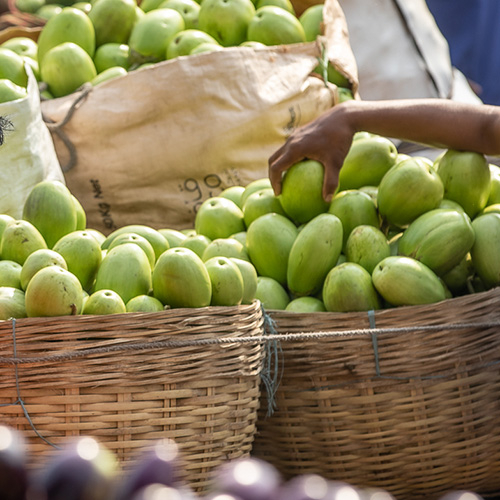In 2014, Bangladesh became the first nation in South Asia to embrace the commercial cultivation of genetically engineered food crops. With the approval of four varieties of Bt eggplant, a new chapter in agricultural innovation began. Over the past decade, the journey of Bt eggplant in Bangladesh has been one of enhanced food security and economic opportunities for farmers. Here we explore some of the milestones and progress that have shaped the trajectory of Bt eggplant cultivation in Bangladesh since its inception.
2013
A Landmark Decision for Bangladesh
In a historic move, Bangladesh emerges as the first country in South Asia to approve the commercial cultivation of a genetically engineered food crop. The National Committee on BioSafety’s endorsement of four varieties of Bt brinjal on 30 October marks a watershed moment. The approval of Bangladesh Agricultural Research Institute (BARI) Begun-1, BARI Begun-2, BARI Begun-3 and BARI Begun-4, following years of extensive testing, initiates a transformative era in the nation’s pursuit of food security.
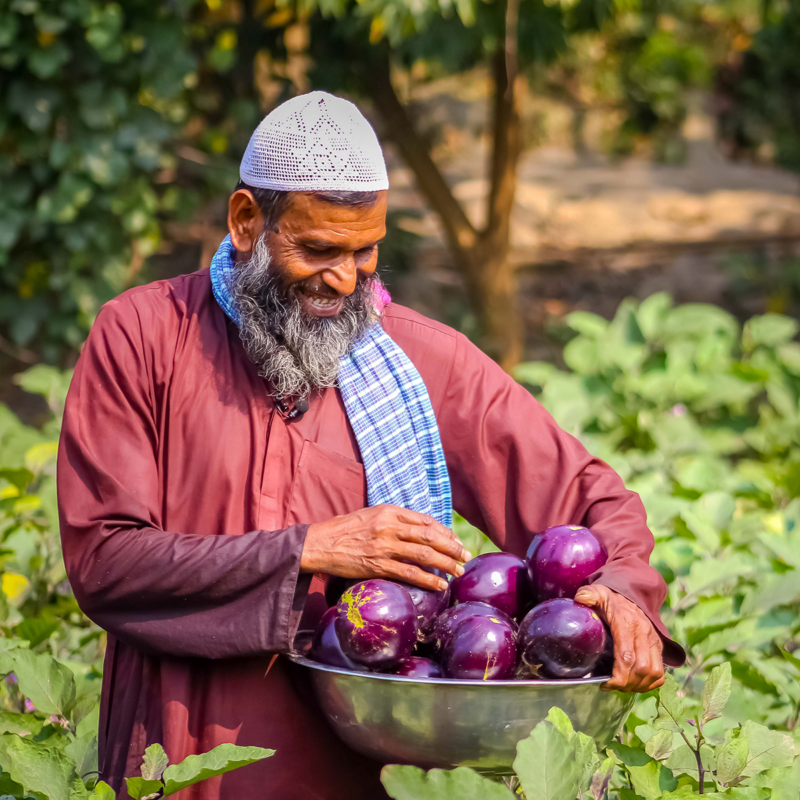
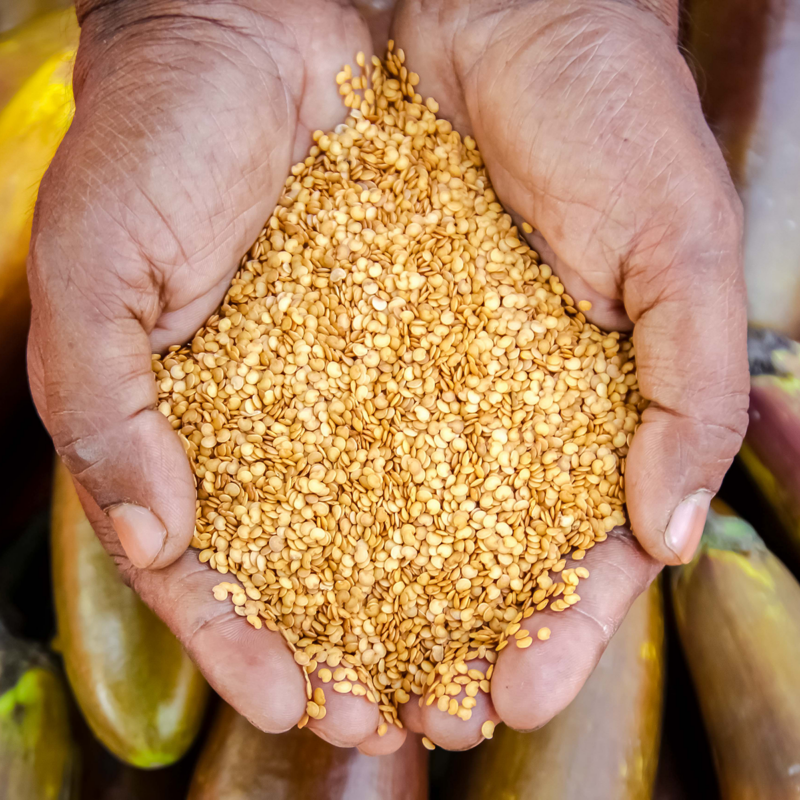
2014
Seeds of Growth
The inaugural distribution of Bt seedlings to 20 farmers across four districts signifies the start of cultivation in Bangladesh. These initial 20 Bt brinjal demonstration plots expand to more than 100 the subsequent year, all of which are meticulously monitored by BARI. Early results prove promising: BARI scientists observe a significant reduction in fruit and shoot borer infestation, heightened yields, diminished pesticide usage, and augmented income for farmers. These positive indicators herald a flourishing trajectory of progress.
2015
Feeding the Future
The inception of the Feed the Future South Asia Eggplant Improvement Partnership unites BARI, the University of the Philippines at Los Baños, and Cornell University in the United States. Through this groundbreaking collaboration with Feed the Future, the U.S. Government’s global initiative for hunger and food security, USAID builds upon prior investments and advances made under the Agricultural Biotechnology Support Project II led by Cornell. This novel project comprehensively addresses and integrates all facets of the commercialization process – from technology development, regulation, marketing, seed distribution, and product stewardship to platforms for policy development, capacity building, gender equality, outreach, and communication.
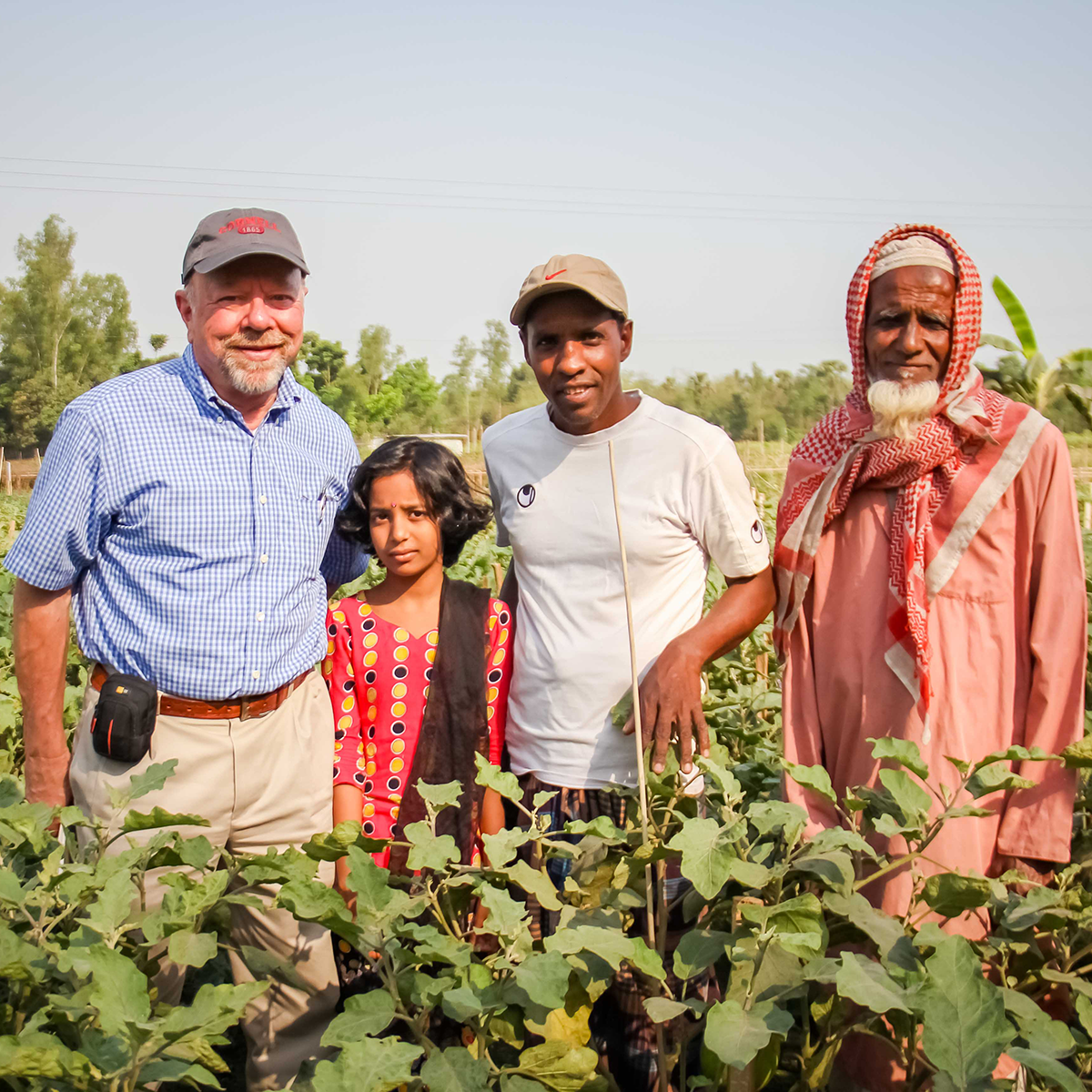
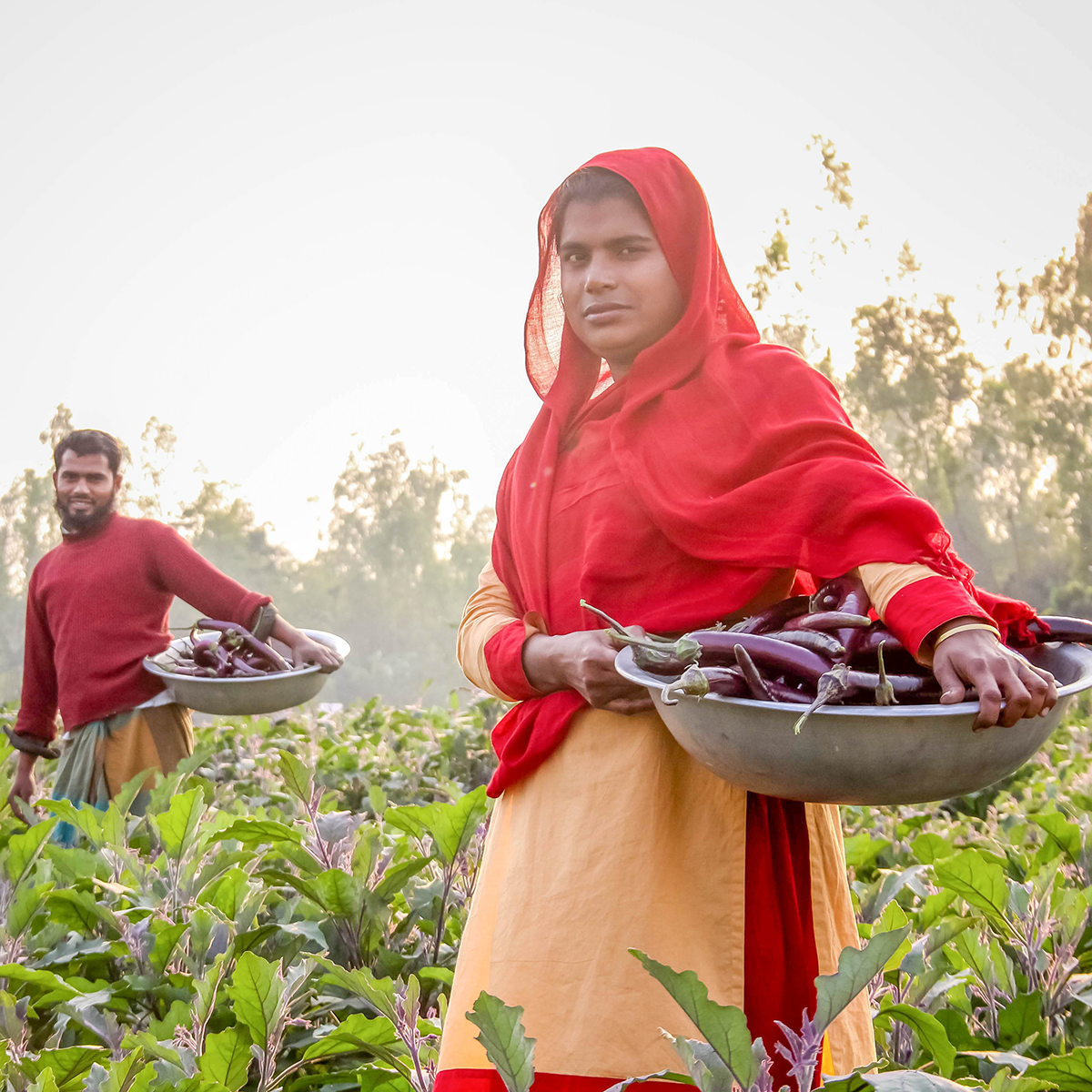
2016-2018
Rapid Adoption
BARI intensifies distribution efforts, expanding the cultivation of Bt eggplant to 512 farmer fields across 36 districts for the 2016 growing season. Concurrently, the Department of Agricultural Extension extends the reach of Bt eggplant, distributing seeds to an additional 6,000 farmers. The momentum of farmer adoption gains further traction in the subsequent years, with the Bangladesh Agricultural Development Corporation facilitating seed sales to 17,950 farmers in 2018 alone. These numbers are further bolstered by farmers saving and replanting seed as the enthusiasm for the impressive new varieties expands, solidifying the widespread embrace of this transformative technology within the agricultural landscape of Bangladesh. Remarkably, within just five years of its inaugural commercial cultivation, approximately 17% of brinjal farmers in Bangladesh reap the benefits of this transformative technology.
2019
Proven Performance
The International Food Policy Research Institute (IFPRI) releases a seminal study assessing the impact of Bt eggplant on smallholder farmers in Bangladesh. This exhaustive study involves 1,200 farmers across 200 villages in northwest Bangladesh. Villages are randomly assigned to cultivate either Bt Begun-4 or a conventional variety (ISD-006), genetically identical to Bt Begun-4 except for the FSB-repelling trait. The study, exploring pest infestation, pesticide use, crop yields, costs, revenues, and self-reported health outcomes, reveals substantial benefits. Key findings include a 95% reduction in FSB infestation, a 56% decrease in pesticide environmental toxicity, a 10% reduction in self-reported symptoms related to pesticide exposure, a 42% increase in yields, and a $400 profit boost per hectare.
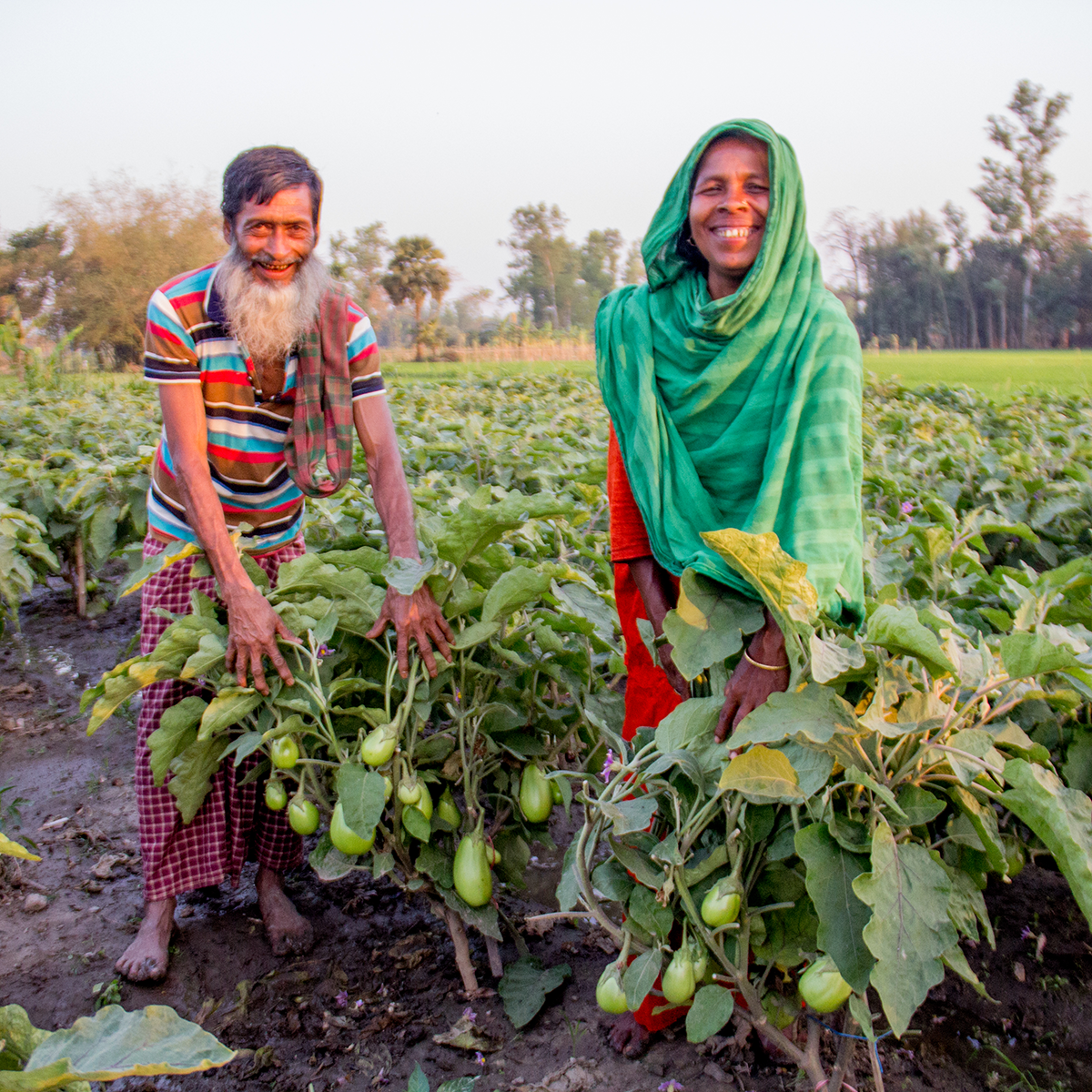
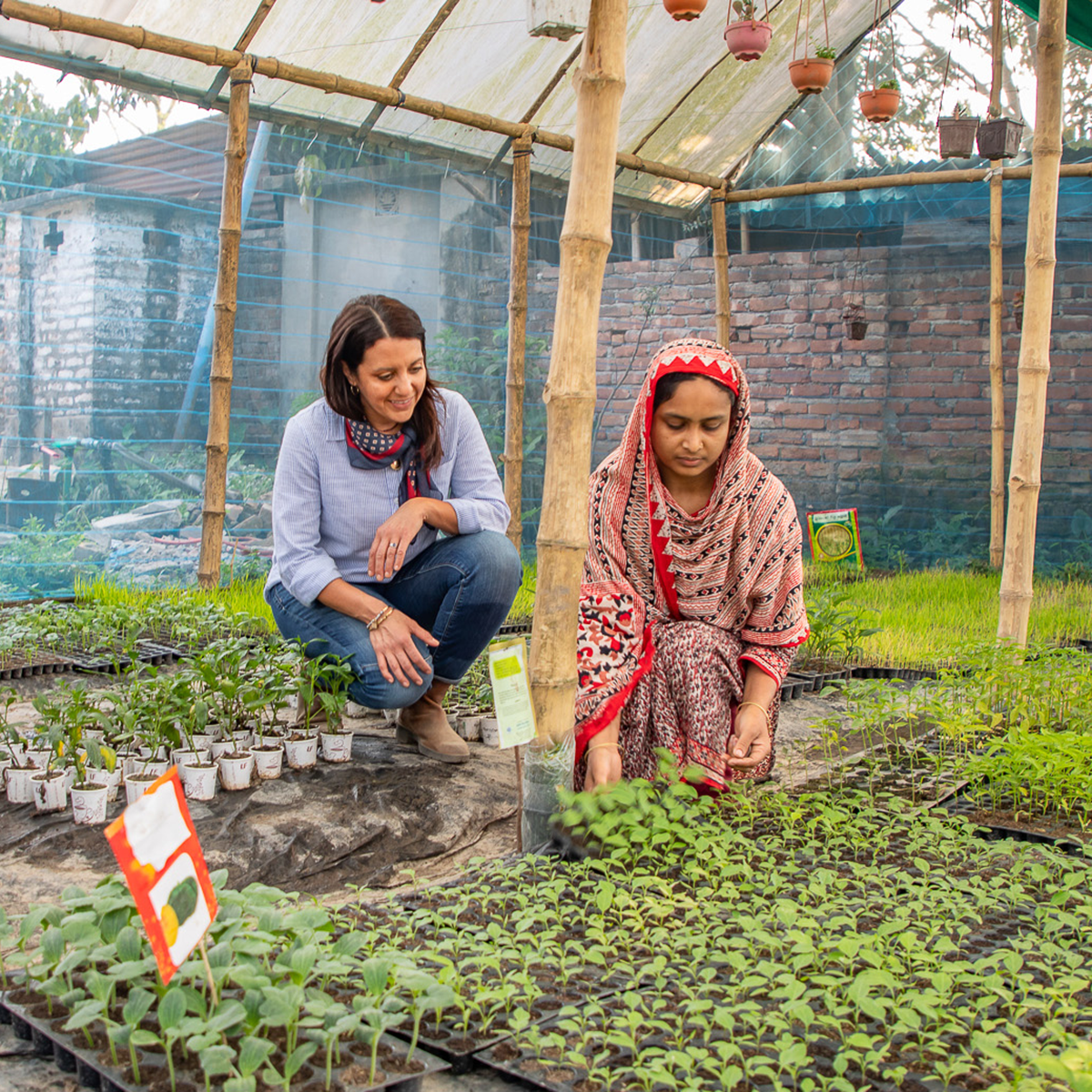
2021
Charting a Resilient Path in South Asia
Building on the achievement of prior USAID projects, the new Feed the Future Insect-Resistant Eggplant Partnership embarks on a renewed effort for food security in South Asia. This comprehensive initiative empowers scientists in Bangladesh and the Philippines to develop locally adapted eggplant varieties. Simultaneously, the project engages with policymakers to establish clear regulatory pathways for their release. According to project director Maricelis Acevedo, the goal is to forge a more prosperous, food-secure, and gender-equitable future for Bangladesh and the Philippines. Public partners include the Bangladesh Agricultural Research Institute, the Bangladesh Agricultural Development Corporation, and the Department of Agricultural Extension, with private-sector collaboration from Sathguru, Mahyco, Farming Future Bangladesh and others in Bangladesh.
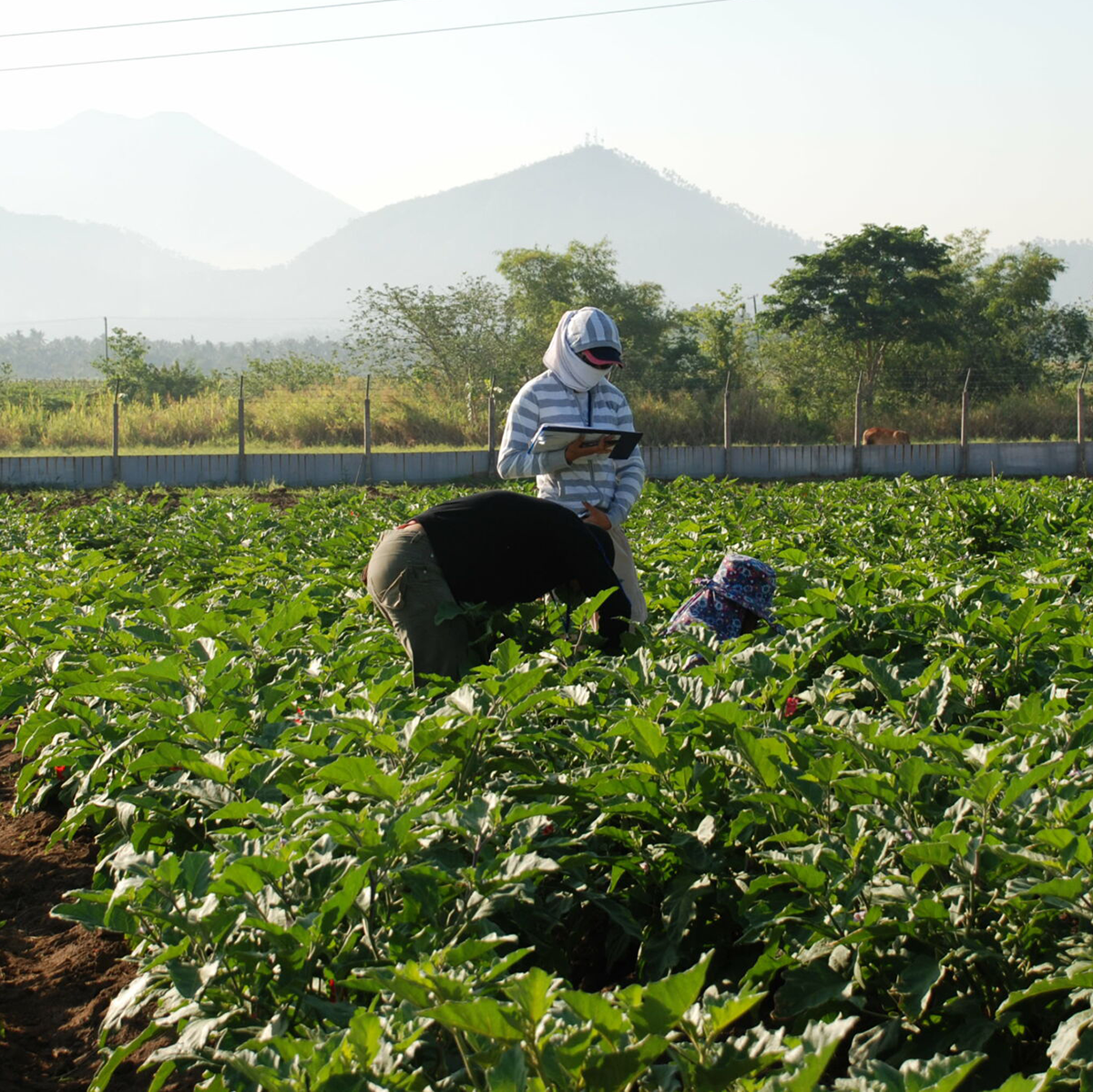
2022
Cultivation Approval in the Philippines
After 15 years of rigorous testing and safety trials, the Philippines becomes the second country to permit the cultivation of genetically modified eggplant varieties resistant to the destructive eggplant fruit and shoot borer. The Department of Agriculture – Bureau of Plant Industry grants a biosafety permit to the University of the Philippines Los Baños (UPLB) on October 18 for the commercial cultivation of Bt eggplant. This government approval encompasses biosafety permits for food, feed, and processing.
Today
Shaping the Future of Food Security
Over the past decade, Bt eggplant has proven itself as a safe and effective technology in demand by eggplant farmers. Yet as the climate evolves and food security faces escalating challenges, our mission to fortify the resilience of communities and food systems in vulnerable areas endures. The Feed the Future Insect-Resistant Eggplant Partnership strives to enhance the adoption and long-term sustainability of Bt eggplant technologies. This involves ensuring high-quality seed production for farmer and market-preferred varieties, developing next-generation Bt eggplant varieties, improving distribution, monitoring field performance, providing effective stewardship, and creating increased value for both farmers and consumers while ensuring environmental benefits. Through this partnership, the project is taking on new challenges against emerging threats like wilt, and empowering women entrepreneurs through innovative programs.
